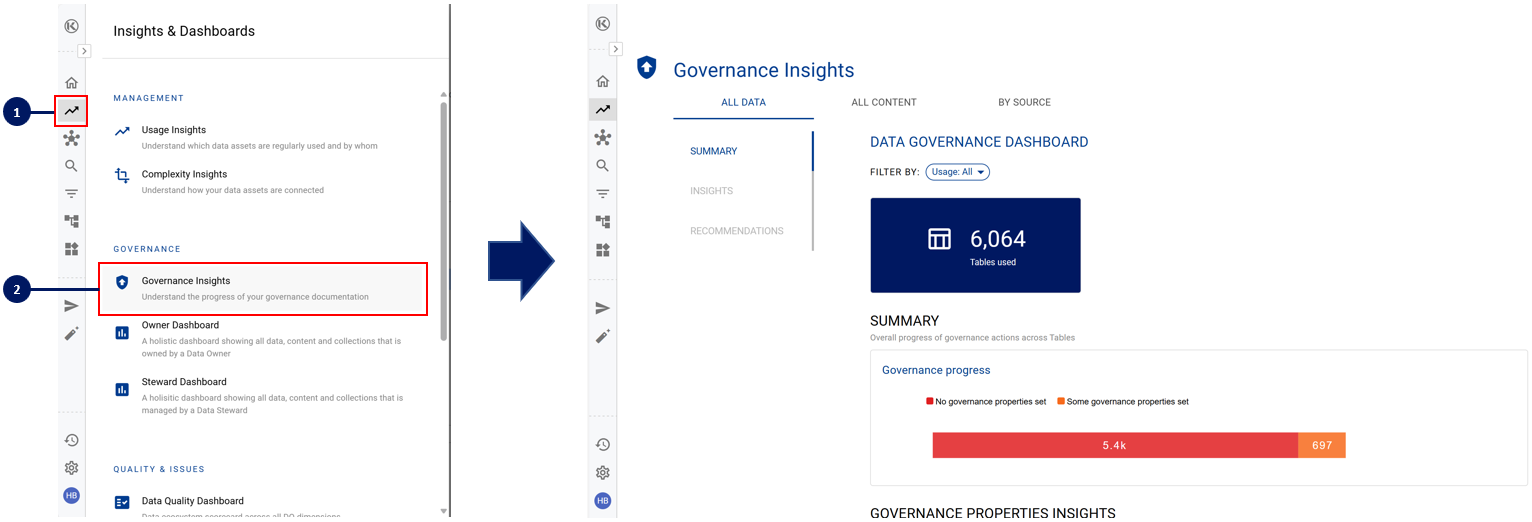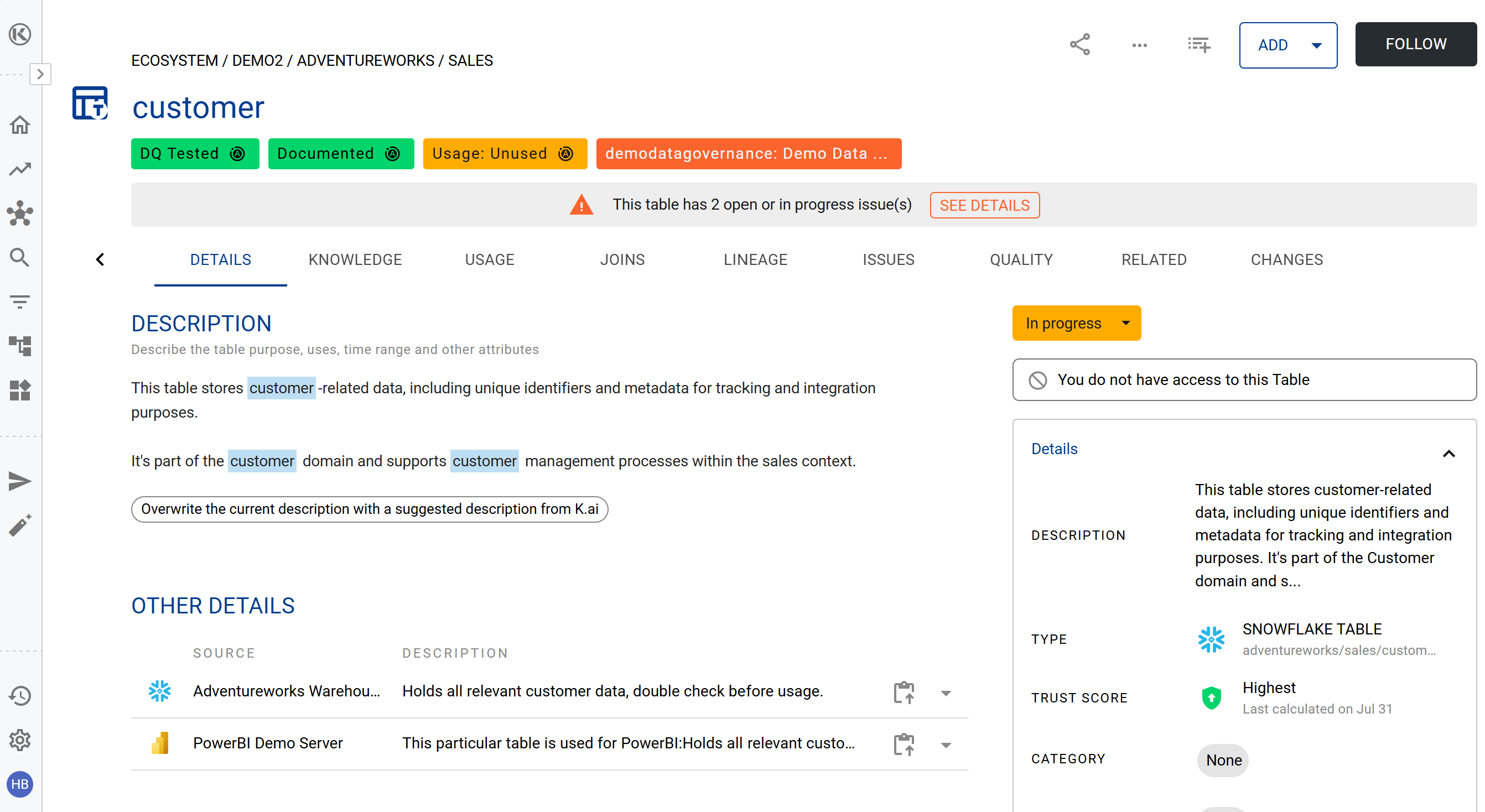Top Tips for Data Governance Users
A Data Governance user is responsible for guiding the Organisation in the proper controls around the collection, handling and use of data. Data Governance is typically part of the Data Function and have unique responsibilities in helping define and drive data lifecycle management, privacy, quality, stewardship, metadata/master/reference data management, security and classification.
As a Data Governance team member, you can use K to manage your data ecosystem’s metadata, classify data, review data usage and access, assign stewards, capture quality metrics, and enable lifecycle management.
Track key governance metrics
Use the Governance Insights Dashboard to review key metrics to help you govern your data.
On this page you can review the number of tables that have been classified, have owners and lineage.

Deep dive on key data items
For critical data items, view the data item’s Profile Page to review:
Categories & Tags: Add manual tags to help call out key elements e.g. CDE or PII
Issues: Review the known issues that have been flagged and work with teams to remediate the issues
Classification: Check to ensure highly restricted and classified data are correctly flagged

Manage Data Governance Settings for K Platform
There are certain capabilities in K that are restricted to Data Governance Managers and Admin profiles. This is to help create a level of consistency in how your data ecosystem is managed via K
Actions that only a Data Governance Manager can perform include:
Configure Data Classification categories
Create a new Data Domain
Create a new Verified Use Case
Create a new Business Glossary
Create a new Data Governance Collection
Confirm who can assign Data Owners or Data Stewards
To perform these actions:
Click on the Settings icon in the menu
Click on Customisation
Scroll down to the Data Governance Setup section

